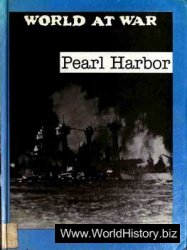Some students arrive at university with a fair amount of knowledge both practical and academic. My own career in archaeology started with an article in a local newspaper appealing for volunteers to help on an excavation. I was soon not only helping to dig, but also assisting the museum with the washing and marking of finds, and from the contacts I made in this voluntary work I was able to work on a number of major excavations in southern England and even Germany before my formal training at university started. Nowadays, because of more stringent rules with insurance and professionalization, such a route may be impossible, but there are many community projects in which schoolchildren can participate; large rescue projects may have ‘open days’ for schools, and some, like Mont Beuvray in France, run summer schools especially for schoolchildren. Few schools teach archaeology formally; in Britain there is an A-level course (examinations taken at 18) in archaeology which is taught in some schools (in 2005, there were 1868 students completing the course), but this is due usually to the motivation of a particular teacher and is, therefore, not available to the vast majority. Some archaeology may be taught within history or, for the origins of humanity, within biology, and some schools may even have archaeology clubs (I have encountered these in Britain and Poland), but most students will have to rely on their own initiative and enthusiasm.
The most obvious sources of information are television, and increasingly, the Internet (see Internet, Archaeology on), but the quality of archaeology presented can vary considerably, with a tendency towards the spectacular or the bizarre, and some programs purporting to be scientific are simply nonsense. But others, such as Time Team or Meet the Ancestors in Britain, give a good idea of scientific approaches such as geophysics or isotope analysis while demonstrating the limitations of archaeological inference as interpretations change from day to day if not hour by hour. However, they fail to show the painstaking, methodical, often boring, work which takes up the majority of an archaeologist’s time, in digging and recording, in processing and analyzing the finds, and in publication.
There are also both local and national societies which cater for young people; in Britain the Council for British Archaeology runs a Young Archaeologists’ Club, with many local groups linked to it (65 at the time of writing), and these may arrange visits, lectures, and where possible, field experience. But for many young people there will be no local organization, so traditional approaches like reading books are the only route. Where entry into university includes an interview at your chosen university, you may well be asked which books you have been reading, and here too the Council for British Archaeology provides useful reading lists. But in Britain, students enter university with a great variety of scholastic backgrounds from the sciences and the humanities, and there is no single recommended route, though this is not true in all countries where, for instance, a background in history or the classics may be required.




 World History
World History









